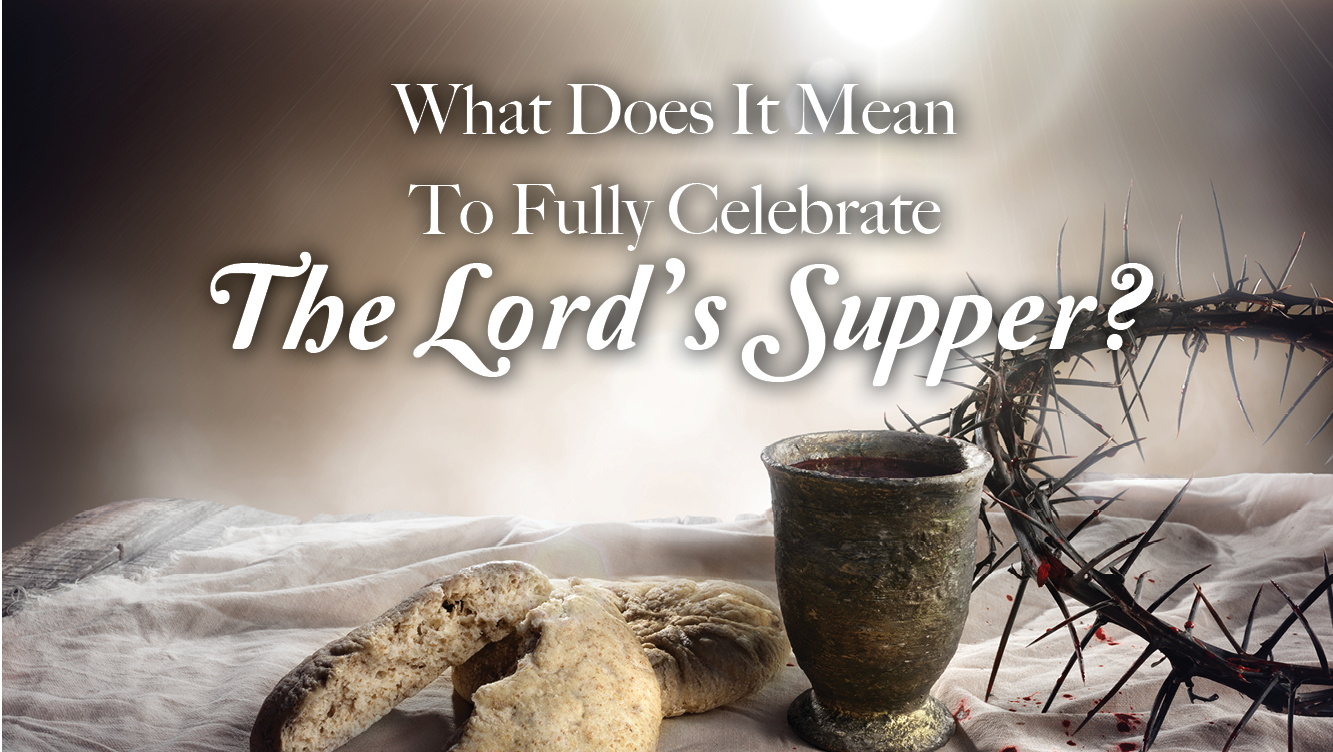 by Vince Wilcox
by Vince Wilcox
Whether your faith tradition calls it Communion, the Lord’s Supper, the Love Feast, or the Holy Eucharist, this celebration is an essential component of our worship services.
Throughout the ages, the Church has taught that the bread represents the body of Christ broken for us and the wine represents the blood of Christ shed for our sins. All three synoptic gospels record Jesus’ command to eat, drink, and commemorate his sacrifice with remarkable uniformity:
- Matthew 26: 26 While they were eating, Jesus took bread, and when he had given thanks, he broke it and gave it to his disciples, saying, “Take and eat; this is my body.” 27 Then he took a cup, and when he had given thanks, he gave it to them, saying, “Drink from it, all of you. 28 This is my blood of the new covenant, which is poured out for many for the forgiveness of sins.”
- Mark 14: 22 While they were eating, Jesus took bread, and when he had given thanks, he broke it and gave it to his disciples, saying, “Take it; this is my body.” 23 Then he took a cup, and when he had given thanks, he gave it to them, and they all drank from it. 24 “This is my blood of the new covenant, which is poured out for many,” he said to them.
- Luke 22: 19 And he took bread, gave thanks and broke it, and gave it to them, saying, “This is my body given for you; do this in remembrance of me.” 20 In the same way, after the supper he took the cup, saying, “This cup is the new covenant in my blood, which is poured out for you.”

The Gospel of John, however, focuses on an additional aspect of that last meal together. By the time John pens his gospel, the Early Church understands that Jesus is the true Lamb of God foreshadowed in the Passover Feast, whose flesh and blood delivers us from our sins. John's account of the Last Supper doesn't seek to explain how the bread and wine are transformed into the body and blood of Christ. Rather, John's account underscores how we should be transformed by his body and blood. The proper response to Christ’s sacrificial love for us is our sacrificial love for others:
John 13: 3 Jesus knew that the Father had put all things under his power, and that he had come from God and was returning to God; 4 so he got up from the meal, took off his outer clothing, and wrapped a towel around his waist. 5 After that, he poured water into a basin and began to wash his disciples’ feet, drying them with the towel that was wrapped around him.
6 He came to Simon Peter, who said to him, “Lord, are you going to wash my feet?”
7 Jesus replied, “You do not realize now what I am doing, but later you will understand.”
8 “No,” said Peter, “you shall never wash my feet.”
Jesus answered, “Unless I wash you, you have no part with me.”
9 “Then, Lord,” Simon Peter replied, “not just my feet but my hands and my head as well!” 10 Jesus answered, “Those who have had a bath need only to wash their feet; their whole body is clean. And you are clean, though not every one of you.” 11 For he knew who was going to betray him, and that was why he said not everyone was clean.
12 When he had finished washing their feet, he put on his clothes and returned to his place. “Do you understand what I have done for you?” he asked them. 13 “You call me ‘Teacher’ and ‘Lord,’ and rightly so, for that is what I am. 14 Now that I, your Lord and Teacher, have washed your feet, you also should wash one another’s feet. 15 I have set you an example that you should do as I have done for you. 16 Very truly I tell you, no servant is greater than his master, nor is a messenger greater than the one who sent him. 17 Now that you know these things, you will be blessed if you do them.
I’m not trying to start an ecumenical debate about the merits of foot-washing as a sacrament.
Rather, I’m just pointing out that—as we receive the body and blood of Christ—we should be deeply convicted by the ways we have esteemed ourselves above our brothers and sisters. We should be broken-hearted about our petty divisions, our snide remarks, affronts to our pride, and our ongoing estrangements. We should grieve the times we've ignored the pain and suffering of those whose feet we are called to wash.
Jesus is showing us that to eat at his table requires that we love those he’s invited.
The men he invited to that Last Supper were divided by political affiliation, wealth, vocation, and denomination. They were jealous, self-interested, and would deny and betray Christ. And if we are honest with ourselves, we are all of these things and more.
Jesus didn’t choose his disciples because they were qualified; rather, he qualified those he chose.
At his table, Christ offers each of us his slain body and poured-out blood—not only to rescue us but also to recreate us in his image. And a critical element of that transformation is learning to love the fallen and broken among us as he loves our fallen and broken selves.
In this age of political partisanship and cultural divisiveness, I am particularly convicted of my profound need for Christ’s love to be expressed in how I love others. And each time I approach the Lord’s table is another grace-filled opportunity to repent and better live out the full meaning of this meal.
Kyrie eleison.
Check out these other devotional blogs from Vince Wilcox:










